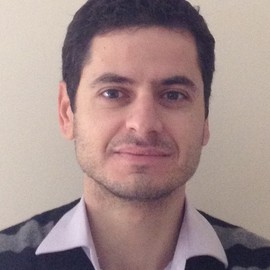The ability to recognise events within diverse data streams — ranging from business process data to computer and sensor networks — is becoming ever more important. This tutorial shows how formal methods from computational logic, probability theory and automata theory, may be combined with neural networks, to provide a sound and effective approach for extracting actionable knowledge from data streams.
Description
Complex Event Recognition (CER) involves the detection of meaningful patterns, known as Complex Events, within streams of continuously arriving “event” data. CER is fundamental in contemporary Big Data applications that require the processing of event streams in order to obtain timely insights and implement reactive measures. Examples of such applications include the recognition of attacks in computer network nodes, human activities on video content, emerging stories and trends on the Social Web, traffic and transport incidents in smart cities, error conditions in smart energy grids, violations of maritime regulations, cardiac arrhythmias, and epidemic spread. In each application, CER allows for making sense of streaming data, reacting accordingly, and preparing for counter-measures.
In this tutorial, we will present the formal methods for CER, i.e., models based on computational logic, probabilistic reasoning, and automata, as they have been developed in the database and artificial intelligence communities. Furthermore, we will discuss how such models may be combined with deep learning techniques, thus supporting neuro-symbolic CER over data streams. To illustrate the reviewed approaches we will employ use cases concerning maritime situational awareness and human activity recognition.
Outline
- Part I. Introduction to Complex Event Recognition (CER)
- Part II. Formal Models for CER
- Part III. Probabilistic CER
- Part IV. Tensor-based CER
- Part V. Topics not covered
Material
Below are all the slides used in the tutorial.
Do you want to make sense of streaming data? Try our quizzes: Quiz 1, Quiz 2 and Quiz 3 or experiment hands-on with our software.
References
- Alevizos, E., Artikis, A., & Paliouras, G. (2024). Complex event recognition with symbolic register transducers. Proc. VLDB Endow., 17(11), 3165–3177.
- Alevizos, E., Skarlatidis, A., Artikis, A., & Paliouras, G. (2017). Probabilistic complex event recognition: A survey. ACM Comput. Surv., 50(5), 71:1–71:31.
- Bucchi, M., Grez, A., Quintana, A., Riveros, C., & Vansummeren, S. (2022). CORE: a complex event recognition engine. Proc. VLDB Endow., 15(9), 1951–1964.
- Cho, C.-W., Wu, Y.-H., Yen, S.-J., Zheng, Y., & Chen, A. L. P. (2011). On-line rule matching for event prediction. VLDB J., 20(3), 303–334.
- Cugola, G., & Margara, A. (2012). Processing flows of information: From data stream to complex event processing. ACM Comput. Surv., 44(3), 15:1–15:62.
- Cugola, G., Margara, A., Matteucci, M., & Tamburrelli, G. (2015). Introducing uncertainty in complex event processing: model, implementation, and validation. Computing, 97(2), 103–144.
- de Leng, D., & Heintz, F. (2019). Approximate stream reasoning with metric temporal logic under uncertainty. In AAAI.
- Dell’Aglio, D., Eiter, T., Heintz, F., & Le Phuoc, D. (2019). Special issue on stream reasoning. Semantic Web, 10(3), 453–455.
- Dell’Aglio, D., Della Valle, E., van Harmelen, F., & Bernstein, A. (2017). Stream reasoning: A survey and outlook. Data Sci., 1(1-2), 59–83.
- Giatrakos, N., Alevizos, E., Artikis, A., Deligiannakis, A., & Garofalakis, M. N. (2020). Complex event recognition in the big data era: a survey. VLDB J., 29(1), 313–352.
- Grez, A., & Riveros, C. (2020). Towards streaming evaluation of queries with correlation in complex event processing. In ICDT.
- Grez, A., Riveros, C., & Ugarte, M. (2019). A formal framework for complex event processing. In ICDT.
- Grez, A., Riveros, C., Ugarte, M., & Vansummeren, S. (2020). On the expressiveness of languages for complex event recognition. In ICDT.
- Idris, M., Ugarte, M., Vansummeren, S., Voigt, H., & Lehner, W. (2019). Efficient query processing for dynamically changing datasets. SIGMOD Rec., 48(1), 33–40.
- Kouvaras, A., Mantenoglou, P., & Artikis, A. (2025). Generating activity definitions with large language models. In EDBT.
- Li, Y., Ge, T., & Chen, C. (2020). Data stream event prediction based on timing knowledge and state transitions. Proc. VLDB Endow., 13(10).
- Mantenoglou, P., Artikis, A., & Paliouras, G. (2020). Online probabilistic interval-based event calculus. In ECAI.
- Mantenoglou, P., Artikis, A., & Paliouras, G. (2023). Online event recognition over noisy data streams. Int. J. Approx. Reason., 161, 108993.
- Mantenoglou, P., Kelesis, D., & Artikis, A. (2023). Complex event recognition with Allen relations. In KR.
- Mantenoglou, P., Pitsikalis, M., & Artikis, A. (2022). Stream reasoning with cycles. In KR.
- Marra, G., Dumančić, S., Manhaeve, R., & De Raedt, L. (2024). From statistical relational to neurosymbolic artificial intelligence: A survey. Artificial Intelligence, 328, 104062.
- McAreavey, K., Bauters, K., Liu, W., & Hong, J. (2017). The event calculus in probabilistic logic programming with annotated disjunctions. In AAMAS.
- Michelioudakis, E., Artikis, A., & Paliouras, G. (2024). Online semi-supervised learning of composite event rules by combining structure and mass-based predicate similarity. Mach. Learn., 113(3), 1445–1481.
- Morariu, V. I., & Davis, L. S. (2011). Multi-agent event recognition in structured scenarios. In CVPR.
- Muthusamy, V., Liu, H., & Jacobsen, H.-A. (2010). Predictive publish/subscribe matching. In DEBS.
- Le Phuoc, D., Eiter, T., & Lê Tuán, A. (2021). A scalable reasoning and learning approach for neural-symbolic stream fusion. In AAAI.
- Pitsikalis, M., Artikis, A., Dreo, R., Ray, C., Camossi, E., & Jousselme, A.-L. (2019). Composite event recognition for maritime monitoring. In DEBS.
- Pitsikalis, M., Do, T.-T., Lisitsa, A., & Luo, S. (2022). Logic rules meet deep learning: A novel approach for ship type classification (extended abstract). In IJCAI.
- Sakama, C., Inoue, K., & Sato, T. (2021). Logic programming in tensor spaces. Ann. Math. Artif. Intell., 89(12), 1133–1153.
- Tsilionis, E., Artikis, A., & Paliouras, G. (2024). A tensor-based formalization of the event calculus. In IJCAI.
- White, W. M., Riedewald, M., Gehrke, J., & Demers, A. J. (2007). What is “next” in event processing? In SIGACT-SIGMOD-SIGART.
Speakers
Alexander Artikis 
Affiliations: University of Piraeus (Primary), NCSR Demokritos (Secondary)
Contact: a.artikis@unipi.gr, Website, DBLP, Google Scholar
Alexander Artikis is a Professor at the University of Piraeus (Greece), and a Research Associate at NCSR Demokritos (Greece), leading the Complex Event Recognition group. He holds a PhD from Imperial College London on the topic of Multi-Agent Systems, while his research interests lie in the areas of Artificial Intelligence and Distributed Systems. He has published over 100 papers in journals such as AIJ, ML, JAIR, VLDBJ, ACM ToCL, ACM TAAS, ACM TIST, ACM Computing Surveys, IEEE TKDE, and TPLP, as well as in competitive conferences including IJCAI, AAAI, ECAI, KR, VLDB, ECML, AAMAS, and CIKM. He has developed complex event processing techniques in several EU-funded Big Data projects, acting as the scientific coordinator in some of them.
He has been teaching undergraduate and postgraduate courses for the past 11 years at the University of Piraeus and other institutions, covering Artificial Intelligence, Machine Learning, Complex Event Recognition, Game Theory, Database Systems, Statistics, and Applied Mathematics. He has given tutorials at ACAI 2024, the 2024 ACM Data Science Summer School, CIKM 2023, DEBS 2022, PLP 2022, IJCAI 2021, KR 2021, VLDB 2017, DEBS 2017, ECAI 2016, ECAI 2014, EDBT 2014, IJCAI 2011, and DEBS 2010. In 2020, he co-organised the Dagstuhl seminar on the “Foundations of Composite Event Recognition”.
Alexander has served on the (senior) programme committees of several major conferences, including AAAI, IJCAI, ECAI, VLDB, AAMAS, KR, CIKM, and DEBS. He is a member of the steering committee of TIME and was the PC co-chair of TIME 2023, TIME 2022, and DEBS 2021. According to Google Scholar, his h-index is 39.
Manolis Pitsikalis 
Affiliation: NCSR Demokritos
Contact: manospits@iit.demokritos.gr, Website, DBLP, Google Scholar
Manolis Pitsikalis is a Research Associate at NCSR Demokritos, in Greece. He holds a PhD from the University of Liverpool, where his research focused on Temporal Logics for Complex Event Recognition and neuro-symbolic techniques for multimodal classification. He has published work in conferences such as IJCAI, CIKM, KR, MDM, and DEBS, and has been awarded the “Harold Boley Award for Most Promising Paper”. He also was a visiting lecturer at the National Kapodistrian University of Athens where he taught Logic Programming and Software Engineering. He has served as a program committee member of CIKM, ECAI and IEEE BigData, and as an artifact evaluation committee member in ETAPS.
Periklis Mantenoglou 
Affiliation: Örebro University
Contact: periklis.mantenoglou@oru.se, Website, DBLP, Google Scholar
Periklis Mantenoglou is a Postdoctoral Researcher at Örebro University, in Sweden. He holds a PhD from the National Kapodistrian University of Athens, and his thesis was about reasoning techniques for complex logical-temporal specification and noisy event streams. His research interests involve stream reasoning, (probabilistic) logic programming, composite event recognition and neuro-symbolic AI. He has published his work in competitive venues, such as KR, ECAI and IJAR.